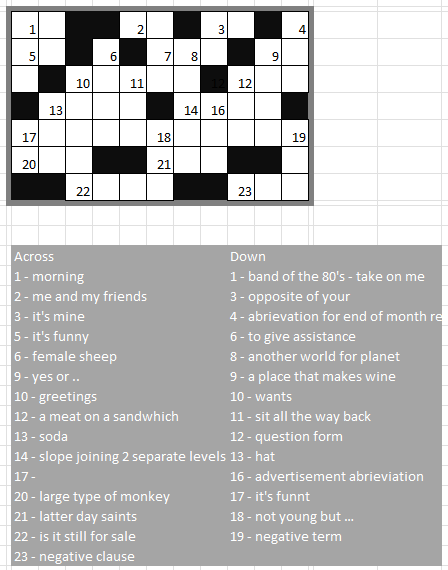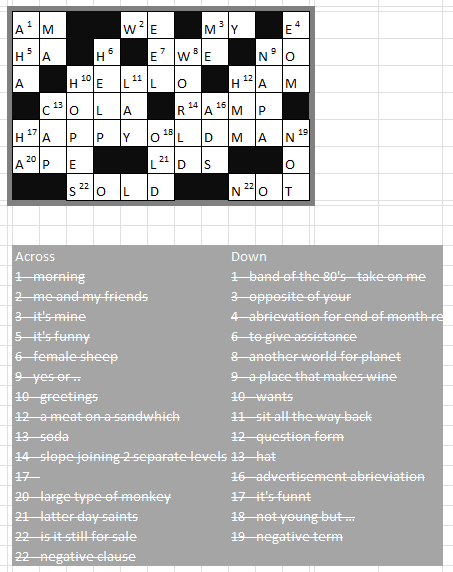Introduction to Crossword Puzzles
Welcome to the captivating world of crossword puzzles! Whether you are a seasoned solver or a newcomer to the realm of wordplay, crossword puzzles offer an enriching and entertaining experience that has fascinated puzzle enthusiasts for decades. In this article, we will introduce you to the wonderful world of crossword puzzles, explore their history, and provide some tips to get you started on your puzzle-solving journey.
The Origins of Crossword Puzzles
The crossword puzzle’s inception can be traced back to the late 19th century, but its popularity surged in the early 20th century. Arthur Wynne, a British journalist, is credited with creating the first modern crossword puzzle, which was published in the New York World newspaper on December 21, 1913. The puzzle was an instant hit, and thus began the crossword craze that continues to this day.
How Crossword Puzzles Work
Crossword puzzles consist of a grid, typically in the shape of a square or rectangle, divided into white and black squares. The goal is to fill the white squares with letters to form words, using clues provided for each word. The clues may vary in difficulty, ranging from straightforward definitions to cryptic or punny references that require a bit of wordplay to decipher.
The puzzle is usually accompanied by a list of clues, organized into two categories: “Across” and “Down.” The “Across” clues represent words that are filled horizontally, while the “Down” clues represent words that are filled vertically. As you progress through the puzzle, certain letters will intersect, helping you solve more clues and fill in the grid.
Here is an example of a bad cross word puzzle
Here is an example of a bad crossword puzzle that has been completed
Benefits of Solving Crossword Puzzles
Apart from being an enjoyable pastime, crossword puzzles offer a range of cognitive benefits. They stimulate the brain, improve vocabulary, enhance problem-solving skills, and boost general knowledge. Moreover, crossword puzzles provide a sense of accomplishment as you successfully complete each challenging grid.
Tips for Solving Crossword Puzzles
Start with Easy Puzzles: If you are new to crossword puzzles, begin with simpler ones designed for beginners. As you become more comfortable, you can gradually tackle more complex puzzles.
Work on the Clues You Know: Start with the clues you are confident about and gradually build momentum as you fill in more answers. Sometimes solving a few words in the puzzle can provide helpful hints for the more challenging ones.
Use a Pencil: Until you are sure about an answer, it’s best to use a pencil to fill in the letters. This way, you can easily make changes if needed.
Read the Clues Carefully: Pay close attention to the wording of the clues. Sometimes, clues may have double meanings or wordplay that can lead you to the right answer.
Work on the Theme (If Applicable): Some crossword puzzles have a theme where certain answers share a common element. Identifying the theme can assist in solving the remaining clues.
Practice, Practice, Practice: Like any skill, solving crossword puzzles improves with practice. The more you solve, the better you’ll get at deciphering clues and completing grids.
Conclusion
Crossword puzzles are an engaging and intellectually stimulating form of entertainment. They offer a delightful way to exercise your brain and immerse yourself in the joy of wordplay. Whether you enjoy solving them leisurely or competitively, the world of crossword puzzles has something to offer everyone.
So, grab a puzzle book, or visit our website to explore a variety of crossword puzzles and start honing your word-solving skills today. Happy puzzling!
